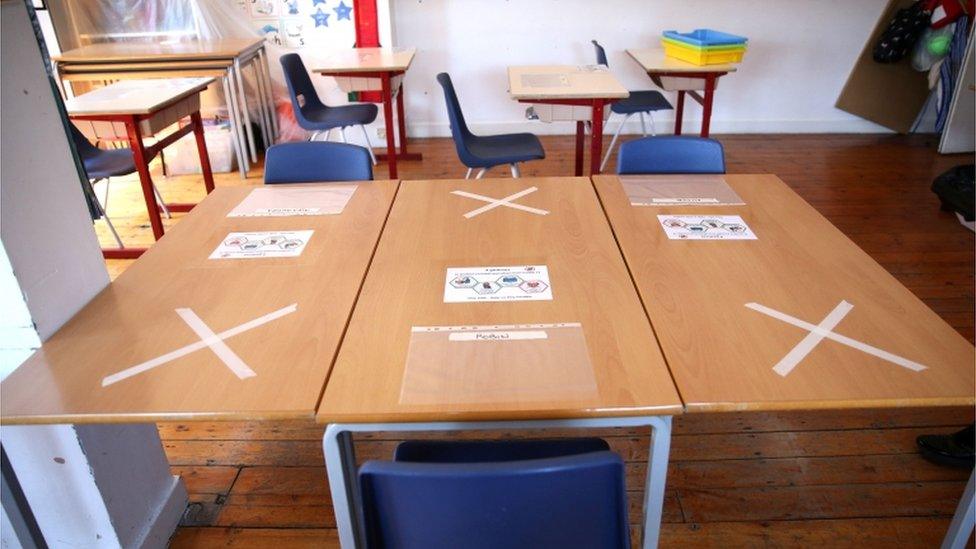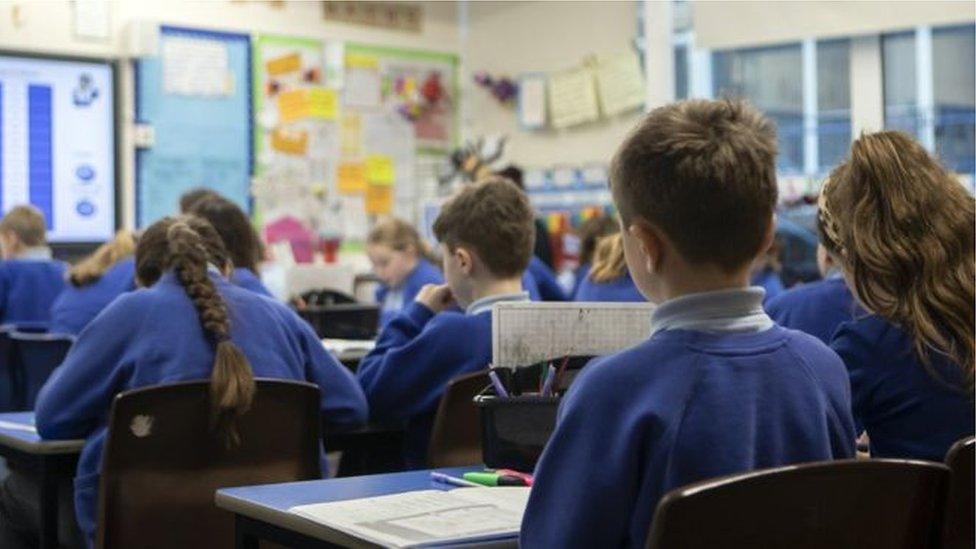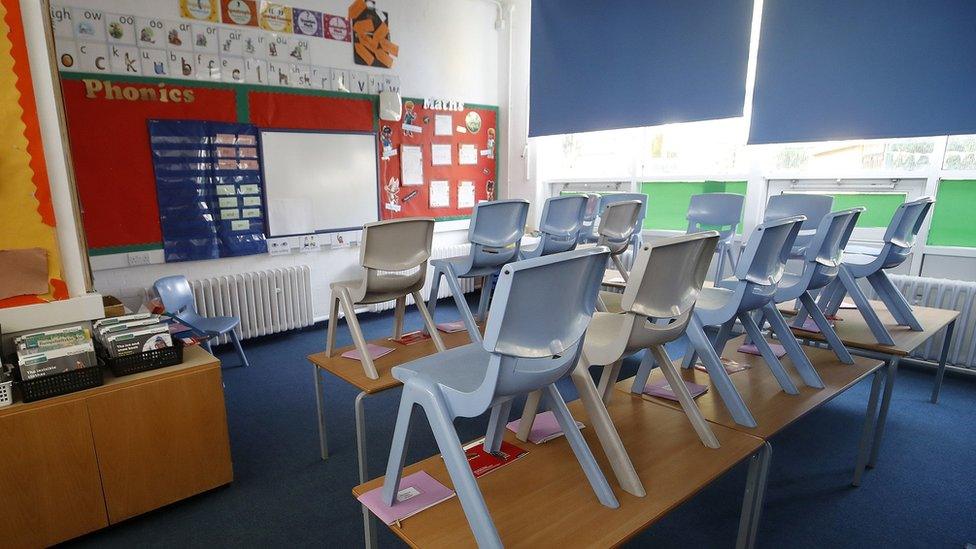Coronavirus: Primary pupils may be at school 'two days a week'
- Published

DE is looking at how often pupils could attend school when they return in September
Pupils in post-primary schools could be in school every other week, while those in primary schools would attend two days a week.
The arrangements would come into place for the new school year.
That is according to a draft document drawn up by a Department of Education (DE) Working Group and seen by BBC News NI.
It is looking at how often pupils could attend school when they return in September.
The working group is made up of school principals and DE officials and is part of the Education Restart Programme initiated by Education Minister Peter Weir.
Their particular working group is one of five and is drawing up options for attendance patterns in "educational and preschool settings".
"The overall conclusion is that limiting the numbers of children going back to school and college initially then gradually increasing numbers, guided by scientific advice, reduces risk of increasing the rate of transmission," the document states.
It said that compliance with a number of guidelines on health and safety, hygiene and social distancing will be necessary.
'Alternative weeks'
The group said that if schools can manage it with appropriate social distancing, all pupils could attend, but they suggested few schools will be in a position to do that.
For post-primary schools, they suggested an "alternative weeks" model would be the most appropriate.
"Schools in some jurisdictions have implemented an alternative week approach to attendance, splitting classes in two and then having one group attend in full for one week while the other group are facilitated via remote learning," the document said.
"This option has obvious attractions in terms of reducing class sizes, reducing transmission risk, supporting remote learning, reducing transport capacity needed and provides a fixed routine for children and parents."
It said that this model also "better supports the existing timetabling patterns for post primary settings".
"However, as with any rota arrangement, it reduces face-to-face teaching time, which may impact on the quality of education provided and would require careful management of teacher workload to facilitate dual teaching and supporting remote learning."
A different "split week" pattern of pupil attendance is suggested as a more viable option for primary schools.
Partial remote learning
Classes would be split in two and then one group would attend on Monday and Tuesday.
"The second group attend on Thursday and Friday, with remote learning facilitated for those not attending on any day," the draft document said.

Classrooms will not look the way they did before lockdown under the draft proposals
"This leaves each Wednesday for teachers to manage remote learning, planning and cleaning of each setting and... to facilitate additional classes for key year groups or to further reduce class sizes.
"This model has obvious attractions in terms of reducing class sizes, reducing transmission risk, managing teacher workload, supporting remote learning, reducing transport capacity needed, and provides a fixed routine for children and parents."
"That said, it significantly reduces face-to-face teaching time, which may impact on the quality of education provided and would not support existing timetabling for post primary schools."
The working group also looked at other models, such as splitting the school day into morning and afternoon sessions.
This, though, "would present issues for teacher workload, capacity to maintain hygiene between sessions, availability of school transport and parental resistance," they said.
Outdoor classes
The group also suggested options like holding some classes outdoors, which has been looked at in other countries like Scotland, France, Denmark, Sweden and Germany.
The document is a working draft only and any final guidance would have to be agreed by senior officials and teaching unions before being signed off by the minister.
BBC News NI understands that guidance to schools on how they will be able to admit pupils in September - and how many - is regarded as a high priority by DE and they hope to provide it in the next few weeks.
In other developments on Friday:
Coronavirus deaths in Northern Ireland fall for fifth week in a row
Daughter of a critically ill nurse says not enough has been done to protect her mother from the virus
Arlene Foster issues a warning over attending anti-racism protests during the pandemic
Irish travel limit changed as lockdown eases in the Republic
If you are missing a bit of live country music - then Ballymena is the place to be

A SIMPLE GUIDE: How do I protect myself?
AVOIDING CONTACT: The rules on self-isolation and exercise
WHAT WE DON'T KNOW How to understand the death toll
TESTING: Can I get tested for coronavirus?
LOOK-UP TOOL: Check cases in your area

- Published12 May 2020

- Published21 May 2020
